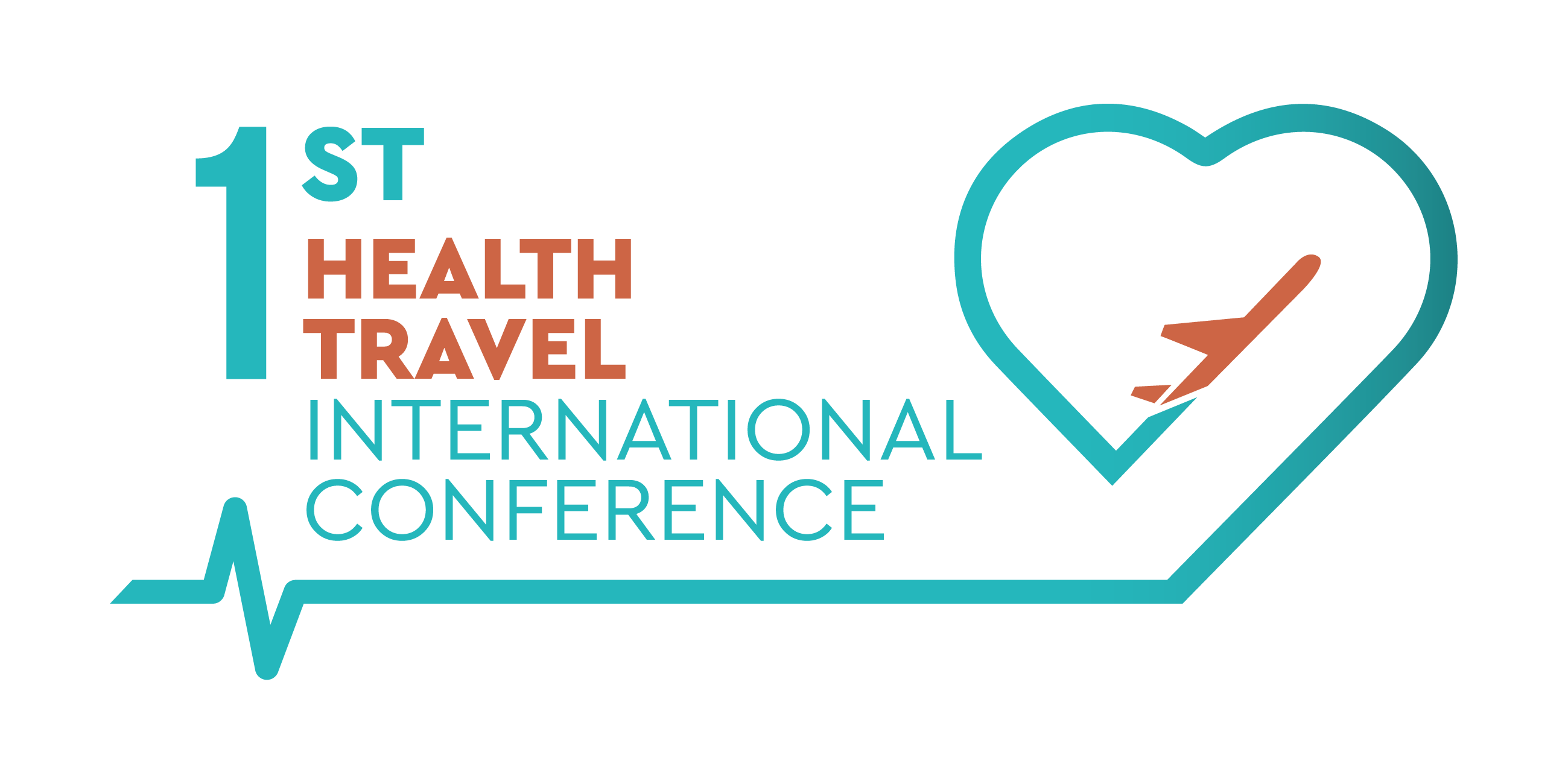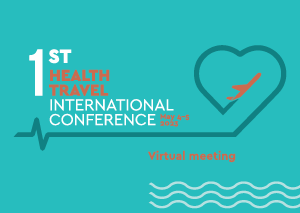1st Health Travel International Conference
‘A Hippocratic concept of health and wellness’ is the brand name of Greece in health and wellness tourism.
Athens May 8th, 2023
The “1st Health Travel International Conference” successfully concluded its works. The virtual Conference (4-5 May 2023) was organised by the Institute of Social and Preventive Medicine (ISPM), a private nonprofit organisation, under the auspices of the Greek Ministries of Health and Tourism and in collaboration with the Hellenic Chamber of Hotels and diaNEOsis. The organising committee is chaired by Yannis Tountas, Professor emeritus of Social and Preventive Medicine, University of Athens, an advocate of health tourism in Greece. More than 450 Greek and foreign participants from 33 countries around the globe attended the conference (Bahrain, Bangladesh, Brazil, the Czech Republic, Croatia, Cyprus, Egypt, Estonia, Finland, Georgia, Germany, Greece, Hungary, India, Iran, Israel, Italy, The Netherlands, North Macedonia, Panama, Poland. Portugal, Rumania, Russia, Slovenia, Spain, Switzerland, Tunisia, Turkey, the United Arab Emirates, the UK, Ukraine, the USA).
This international conference, the first of its kind in Greece, highlighted the great potential for the development of health tourism in Greece as another pillar of the country’s economy, but also the need to develop a modern institutional framework that will meet the needs of the new post-COVID era and will consolidate the country’s comparative advantages, making possible the transition from the current tourism model of “sun & sea” to one that will meet the needs of many more people, by offering alternatives. Greece needs to develop a brand name in health and wellness tourism while a roadmap for the development of health tourism is necessary. Health and tourism are inextricably linked; however, there is a need to understand the concept of health tourism, a multifaceted term, the most important element being the motivation for physical, mental, and spiritual health.
The participation of the Ministers of Health, Thanos Plevris and Tourism, Vassilis Kikilias, the Regional Governor of Attica, Doctor and President of the Greek Health Tourism Council (ELITOUR), Georgios Patoulis and institutional representatives of health and tourism and many businesses, highlights the importance that the state and the domestic market attributes to the conference.
58 prominent Greek and foreign experts, spoke about the current global trends, the requirements of the new standard of health and wellness tourism.
The Chairman of the Organising Committee, Yannis Tountas, in his opening speech, referred to the Hippocratic concept of health and well-being and the holistic approach to health that was applied in the Asclepieions, such as those of Epidaurus and Kos. The first historical reference to thermal baths was made by Herodotus 2,500 years ago, about the thermal baths of Orea Eleni outside Corinth. He also mentioned the example of the ancient Spartans who used the thermal springs of Thermopylae before battle. He concluded that Greece may very well become a leading destination in the field of health tourism by applying the Hippocratic concept in its development.
Developments are already underway on behalf of the state, such as a new bill by the Ministries of Health, Tourism and Development, in cooperation with the Region of Attica, which will provide for the possibility of operating clinics certified by the Ministry of Health, to provide specialised services within large tourist resorts. It also provides for the creation of a medical visa -an initiative of the Ministry of Foreign Affairs- and the creation of incentives for initiatives by municipalities and regions of the country to develop Domestic Management Organisations (DMOs), which will manage Silver Tourism at local and regional level.
The two-day conference covered all sectors of health tourism: medical tourism, spa tourism and wellness tourism. A set of prerequisites for health tourism was described by the participants in their presentations. It is necessary to have a clear legal framework, while it is of the utmost importance that quality and high standards are consistently served to improve the patient experience. Prerequisites for growth in the sector are strategy, data analysis and continuous training for high-quality human capital. Health tourism involves the concepts of inclusion, sustainability, and resilience. In this context, a culture of quality, responsibility and accountability, standardisation of procedures and active participation of patients and carers are required. It is also necessary for health tourism destination countries to develop their own footprint, their “specialisation”.
The need to better understand the concept of health tourism was also highlighted, as the term encompasses many elements such as the motivation for physical, mental, and spiritual health. Spa tourism is combined with cultural tourism, and the bet for the future is to turn them into prevention and wellness destinations. Wellness tourism is a global trend; it is inextricably linked with other forms of tourism, and it is particularly important to energise travellers to discover their personal wellness recipe. Wellness as a way of life; it is through these forms of tourism that we are returning to nature and history and an increasing number of people are using spa tourism through its wellness dimension.
Interesting statements were made by the distinguished representatives of international organisations, starting with Michel Julian, Senior Programme Officer, Tourism Market Intelligence and Competitiveness Department, United Nations World Tourism Organization (UNWTO), who said that Greece is an example of a country that recovered after the pandemic by following the sanitary protocols and spatial restrictions, adding that Greece is a valuable member of the UNWTO. There is a need to better understand the concept of health tourism, the most important being the motivation for physical, mental and spiritual health, he stressed, concluding by pointing out that health tourism by definition includes the concepts of inclusion, sustainability and resilience.
Referring to Medical Tourism, Mohamed Al Mheiri, Director, Health Tourism Department, Health Regulation Sector, Dubai Health Authority, UAE, presented the case of Dubai, which is a global centre for medical tourism with a growing brand, good infrastructure, and high-quality services. For his part, Lutz Lungwitz, President, German Medical Wellness Association & Vice-president, Global Healthcare Travel Council, spoke about the case of Germany and explained that the main reason for seeking treatments abroad is because these services are not available in the patients’ countries. Other destinations have better facilities but also use more modern technologies, sending the message that if we work together, we can promote Greece as a destination for healthcare tourism.
Simone Zagrodnik, Executive Director, European Historic Thermal Towns Association (EHTTA), after describing the background and mission of the EHTTA, which has 50 members from 18 countries, said that thermal tourism combines medical and cultural tourism. These destinations, she said, come from the depths of history and are dedicated to healing, and the bet for the future is to turn them into prevention and wellness destinations. She also stressed that during the pandemic, spas were the first to close and the last to open, and now in the post-COVID era we need to rediscover them. She also mentioned the promotional campaigns organised by her organisation for spa travel and the importance of extroversion activities such as the presentation of Pozar Spa at the 2023 ITB Berlin.
In a session dedicated to wellness tourism, Andrew Gibson, Advisor and strategist for Wellness communities, real estate and hospitality, describing wellness as a lifestyle, made an interesting suggestion that Greece should register the unique Greek word “thalassa” (=sea) as a signature for wellness activities. Csilla Mezősi, Secretary General of the European Spas Association (ESPA), said that for 25 years ESPA has been promoting spas and spa resorts in Europe. Through these forms of tourism, she said, we are returning to nature and history and stressed that an increasing number of people are using spa tourism through the wellness dimension. She referred to successful examples from abroad and to the possibilities highlighted by the pandemic, pointing out that 16 countries are already offering treatments for post-COVID syndrome through spa tourism. Maria Todd, Mercury Healthcare, USA, stressed that Greece has a key advantage, a natural tendency to offer rehabilitation due to the quality of the water.
Representatives of stakeholders, experts and market representatives participated in sessions on the situation in Greece and the highlighting of the shortcomings as well as the potential and opportunities. Successful efforts were presented, and particular reference was made to the upgrading of the institutional framework. The funding tools as well as the planning of the competent Ministries were presented by the General Secretary of Tourism Policy and Development, Olympia Anastasopoulou and Dimitris Skalkos, General Secretary of Public Investments and Partnership Agreement, Ministry of Development and Investments.
The proceedings were concluded with a session in which the members of the organising committee, Maria Georgia, Marios Danas, Stavros Mavridis and Angeliki Christidou and the Chairman, Yannis Tountas participated, summarising the highlights of the two-day conference, which will establish Greece as one of the leading destinations for Health Tourism. There is great potential for the development of health tourism in Greece, they said; however, there is a need to formulate a modern institutional framework for the post-COVID era, which will highlight the country’s new brand with its comparative advantages, making the transition from the current tourism model of “sun & sea” to a model of tourism that will meet the needs of more people by offering alternatives adapted to the needs of the times. The initiator of the conference, Professor emeritus Yannis Tountas, closed the proceedings by thanking the participants, the speakers, the supporting organisations, the sponsors, and the organisers, expressing the hope that the conference will be established both in Greece and internationally as a forum for the proposal, promotion and implementation of all modern methods and policies in the field of Health Tourism.
Watch the sessions videos HERE

